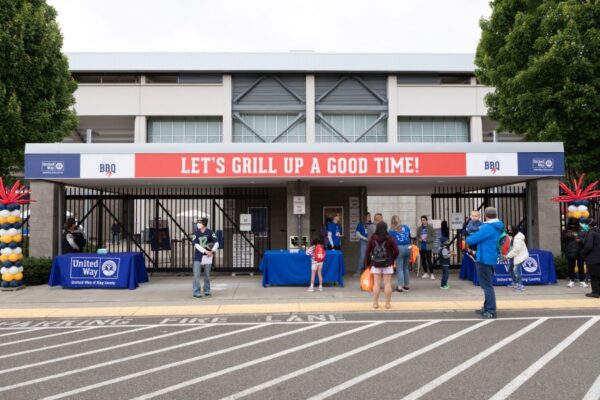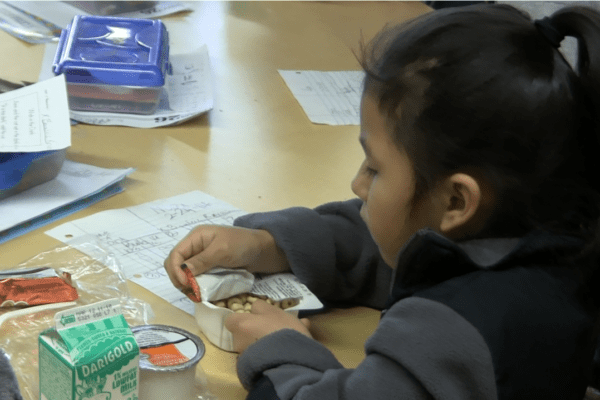Big Problem. Simple Solution.
Yesterday I visited a Federal Way High School with some of the most caring adults and resilient teenagers I’ve ever come across. Among the biggest challenges students face–hunger. Not calculus, Shakespeare, or even messy high school romances. Too many students don’t have enough food to stay focused, healthy and prepared.
One in five Washington kids is struggling with hunger. Hungry kids can’t learn and thrive. The federal School Breakfast Program can change that – if kids can access it. While 51% of students in the United States are eligible for free or reduced price schools meals, it is too hard for most low income kids to access school breakfast. In Washington, 67% of eligible low-income students do not eat breakfast – and it’s not because they aren’t hungry. From transportation challenges to stigma – my friends in Federal Way and across WA are accessing a program designed to help them. The current model of serving school breakfast doesn’t work as well as it could.
Despite heroic attempts from many school nutrition directors, teachers, administrators, and anti-hunger advocates – Washington ranks 41st in the nation in reaching low-income students with nutritious school breakfasts.
Think about that – we’re darn good at football and the most innovative state in the nation – but rank 41st in feeding breakfast to hungry kids. We are better than that and we can help fix it. By making breakfast part of the school day – just like lunch – we can guarantee that kids start the day with the fuel they need to thrive.
Research and local experience tells us that moving breakfast after the bell – dramatically increases participation. And everything is better in schools with high breakfast participation – from test scores to attendance. It’s good for kids and good for schools because it leverages federal funding.
Schools in WA have the option to offer Breakfast After The Bell today – some do – but for a variety of reasons most do not. We know that Breakfast after the Bell works and we need to guarantee kids can access it. Optional isn’t working and isn’t equitable. That is why United Way of King County teamed up with WithinReach, Washington Appleseed, Children’s Alliance and dozens of organizations to support Breakfast After the Bell legislation.
In partnership with the Breakfast After The Bell Coalition and the Washington School Nutrition Association we have developed legislation that puts kids first and that will help 400 schools implement Breakfast After The Bell in a model that works for them. Together we will help 25,000 more low-income students access breakfast each day and leverage $23 million in federal reimbursements.
Together we have shaped a bill that:
- Is limited. It helps the kids and schools that need it the most.
- Is practical. A proven solution to making a program that exists more effective.
- An equalizer. It helps all high needs kids start the day off right.
There are many things to debate in Olympia this session. But Breakfast after the Bell is an easy one to support. It provides a simple solution to a big problem (hunger) – by taking a program that already exists and making it more effective. HB 1295 and SB 5437 will guarantee that kids in high needs schools start the day with breakfast. House sponsor, Representative Hudgins, and Senate sponsor, Senator Litzow agree: feeding hungry kids in the best way we know how should not be optional.
Contact your legislators today and tell them you support HB 1295 and SB 5437.
For more information about Breakfast After The Bell visit: schoolbreakfastwa.org





Comments
kevin johnson
February 9, 2015breakfast is important.Kids study better when they have a good breakfast.
I support both 1295 and 5437
Simplifying
May 9, 2024Good to see actions towards improving lives of kids